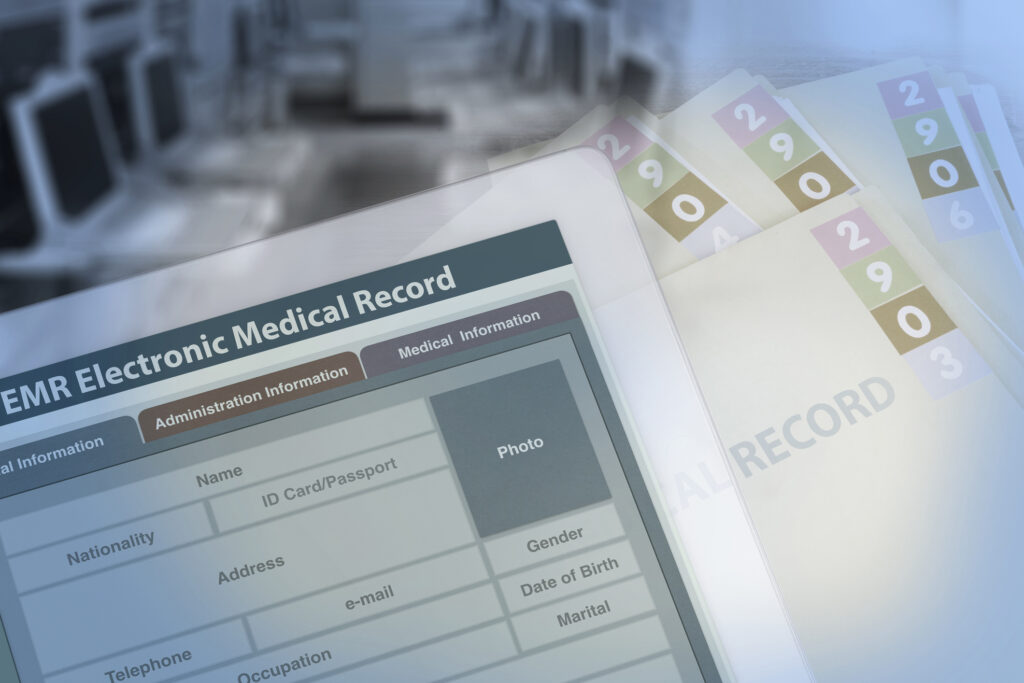A few weeks ago, I went to get an MRI for what the doctor suspected was a torn ACL. Unfortunately, the imaging confirmed the injury, and my next decision was whether I wanted to go ahead with the surgery or rehab the injury and hope for the best.
Trying to be a well-informed patient, I thought I would get the MRI images sent to me so I could share them with another surgeon and get a second or third opinion. This is my knee, after all, and I have a couple of decades of active parenting ahead of me. So I want to make sure I make the right choice.
But when I called the imaging center, they told me I had to wait for two weeks before they could send it to me and that they could only send it to the surgeon. I paid for the images, and they are of my knee, but the gatekeeping persisted. Even after the doctor told me the results, I had to wait. The inability to access and easily share medical records is a problem that has plagued many, especially those without technical know-how.
New Hampshire is the only state in the country with an explicit law that says medical records belong to the patient. All other states have some combination of the provider owning the records and a limited version of those records being accessible through an app or online platform. For many patients, the portal is more than enough transparency, but it takes some technical abilities and initiative. Hard copy records can be accessed, but one’s ability to access them depends on a doctor’s willingness to share and the speed of a provider’s records department.
But in 2016, Congress passed the CURES act, a massive spending bill that included a provision saying that providers must immediately share all medical records without cost. That part of the act went into effect in April last year and includes test results, medications, referral lists, and clinical notes. The U.S. is joining a host of other nations where this is the case. Swedish citizens received access to their medical records between 2012 and 2018, and Estonia, of all places, has had a rule like this since 2005. Problem solved, right?
Not so fast. This provision may be causing unintended consequences, especially surrounding sensitive conversations and the delivery of hard news, says Dr. David Gerber, a U.T. Southwestern oncologist who has been studying the issue for years. He is the associate director for clinical research and is the co-leader of the Experimental Therapeutics Program at UTSW. Gerber’s clinical work focuses on lung cancer, and he has been involved in his fair share of conversations involving delivering bad news.

Because of the CURES Act, medical records such as test results or imaging are supposed to be sent to the physician and patient at the same time, but because physicians are often unable to get to their inbox until they have administrative time, patients are often looking at the records before the physician.
If the information is emotionally charged (cancer diagnosis, terminal illness, loss of pregnancy), then the patient is processing the information without the assistance of an expert who can help explain what everything means, what a prognosis looks like, and to be there emotionally for the patient. For many physicians (though not all), this conversation and the relationship they have with their patients is the reason they got into medicine, but now the news is being broken hours or days before the physician can weigh in.
“We’re often looking at information written for the ordering physician to understand, not for the general public. That’s where we’ve seen a lot of emotional psychosocial distress and misunderstanding,” Gerber says. “For some information, if you hear it in the context of someone who understands the significance, what it means, and what the plan is, that can prevent people from assuming something is harmful or serious when it’s not. When something truly is medically significant, they hear about it with other information that would empower them.”
While a patient could receive terrible news without the help of a physician, the new law could result in something more trivial but equally impactful. Many future parents don’t want to know the sex of their baby, but if the test is sent immediately, the patients might not know which part to look at (to see if there is anything abnormal with the baby) and which part to avoid (where it lists the sex). In other cases, clinical notes written for other doctors might be more confusing than helpful. If they are about a mental health issue, it might be detrimental to immediately see what your physician is writing about you in the notes.
At UT Southwestern, Gerber said the policy had been to meet with patients in an in-person or virtual meeting within 72 hours of receiving results. This allows the physician time to prepare to devise a plan, gather resources, and strategize how to break the news in a way that is best for the patients.
While delaying bad news might make logical sense, some studies show that parents who have immediate access to their health information feel more involved and knowledgable about their care, better prepared for visits, and more likely to follow doctor’s orders. A Swedish study found that cancer patients who looked at their test results experienced less of what the study called “scanxiety,” which is the anxiety one experiences while waiting on scan results.
But another study published by the Journal of the American Medical Association argues that the unintended consequences may outweigh the benefits in some cases. “Additional consideration of the timing of test result release to patients and clinicians is necessary to ensure that results are made available to patients while maintaining the opportunity for clinicians to apply their expertise and interpretation,” the study says.
In response, some physician groups are looking to temper the impact of the CURES Act. In Kentucky, HB 529 passed in the last legislative session that said that test results that may reveal a genetic marker or malignancy do not have to be immediately delivered but can be kept for 72 hours so that physicians can schedule a meeting to deliver the news. Called the Compassionate Care Bill, it is meant not to let patients interpret results alone.
There hasn’t been any legislation in Texas, but some medical societies are discussing the CURES Act and contemplating a tempering measure. Those who have looked into the issue in the U.S. have received a positive response from physicians, hospitals, nurses, and patient advocacy groups. Gerber is hopeful that the law can find a happy medium that allows transparency without causing emotional distress. “This was not a partisan issue. This is not Democrat versus Republican. I think this is an example of unintended consequences. I don’t think there’s anyone who intended to create this confusion.”
Get the D CEO Healthcare Newsletter
Author






